

Election on knife’s edge as early voting continues






Election on knife’s edge as early voting continues



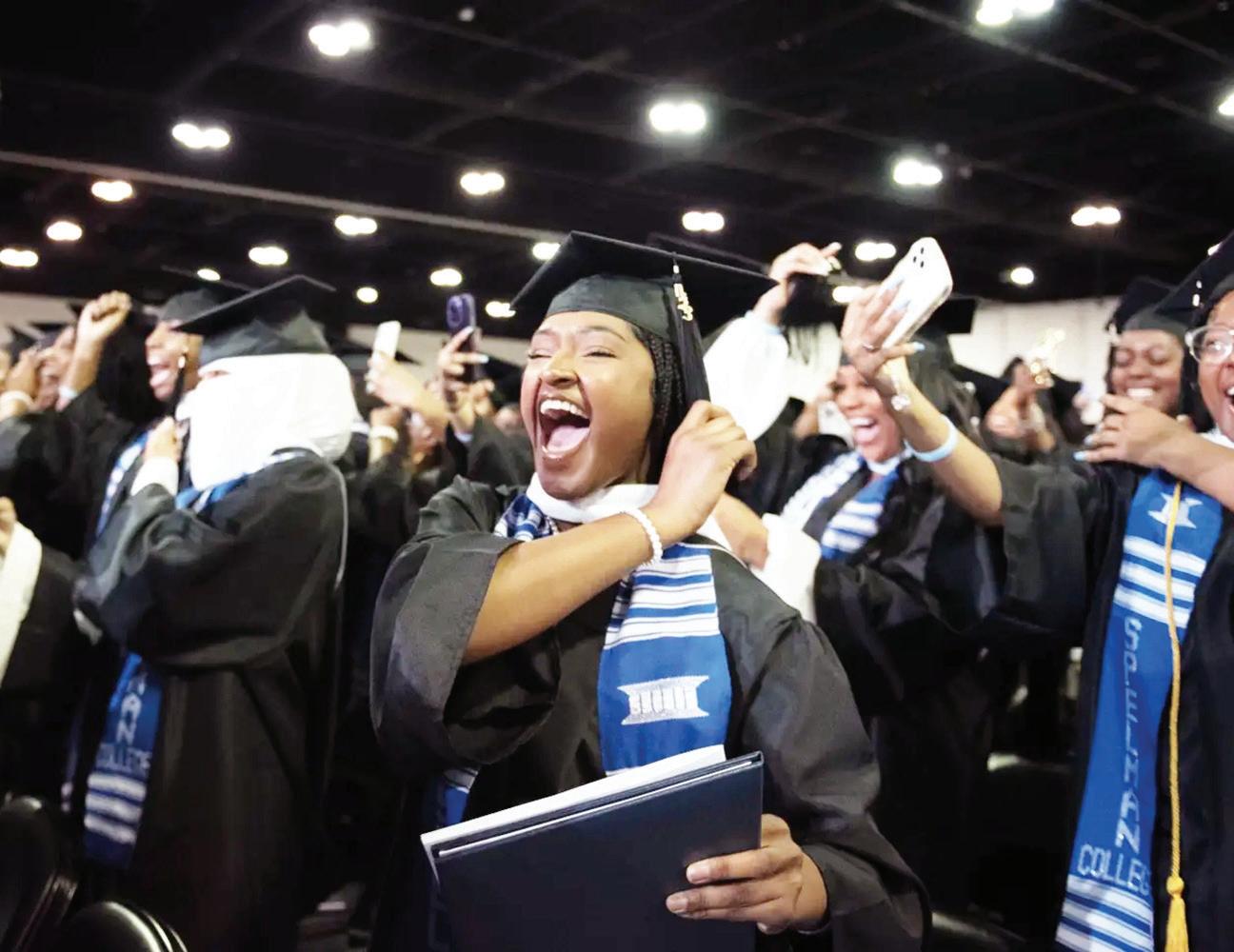
By Stacy M. Brown NNPA
The Biden-Harris administration’s mission to strengthen educational equity and economic opportunity was on full display again as the White House announced an additional $1.3 billion in federal investments for historically Black colleges and universities (HBCUs). The new funding brings the administration’s total investment in HBCUs to an unprecedented $17 billion since Fiscal Year 2021, setting a new record and further displaying the administration’s commitment to institutions that have long served as beacons of opportunity and excellence for Black Americans.
Though representing only three percent of all U.S. colleges and universities, HBCUs play a crucial role in fostering economic mobility. According to White House officials, HBCUs enroll twice as many Pell Grant-eligible low- and middle-income students as non-HBCU institutions, producing
a significant percentage of Black professionals in critical fields—40% of engineers, 50% of teachers, 70% of doctors and dentists, and 80% of judges.
Officials touted Vice President Kamala Harris, an alumna of Howard University, as an example of these institutions’ profound impact on shaping national leadership.
A White House fact sheet highlighted how HBCUs are not just educational powerhouses but also drivers of economic growth.
Research by the United Negro College Fund (UNCF) shows that HBCUs help more than five times as many students move from the bottom 40% to the top 60% of U.S. households compared to Ivy League and other elite non-HBCU institutions.
Fur- ther, a report from the Council of Eco- nomic Advisors (CEA) links HBCU enroll- ment with higher graduation rates and increased household incomes, affirming their role in advancing social and economic equity.
Economically, according to the UNCF, HBCUs contribute $16.5 billion annually to the U.S. economy, generate over 136,000 jobs, and produce $146 billion in lifetime earnings for their graduates. The administration’s investments aim to amplify this impact, particularly by enhancing HBCUs’ research and development (R&D) capacities in STEM fields.
The new $1.3 billion investment includes $188 million in competitive grants for R&D capacity building and $1.1 billion in funding to support students directly through need-based grants and programs like Pell Grants. According to the fact sheet, this action builds on a series of initiatives launched to expand HBCUs’ influence and capabilities, including:
• Innovation in defense: The Department of Defense created the first-ever HBCU-led University Affiliated Research
By Tom Gitaa Mshale
Hennepin Healthcare System has appointed Mohamed Omar as its first Somali Board of Directors chairman since the system began operating as Minneapolis City Hospital in 1887.
Mr. Omar is the chief administrative officer for the 141-year-old Minneapolisbased Washburn Center for Children, and was previously the controller and chief accountant at the Metropolitan Council.
Hennepin Healthcare System (HHS), is a public corporation established by state statute. That statue says HHS as a public corporation will operate “as a subsidiary of the county of Hennepin.” It is governed by a corporate board, of which two members are Hennepin County commissioners. It also oversees Hennepin County Medical Center (HCMC), and other county clinics in cities like Brooklyn Park and Golden Valley.
HCMC is the state’s largest and busiest Level 1 Trauma Center and also serves as a teaching hospital. Among the duties the Legislature has given it is that of operating the state’s poison control hotline. In addition to serving the general public’s healthcare needs, the specific statue that setup HHS says that the
public includes “the indigent as defined by state and federal law and as determined by the Hennepin County Board of Commissioners.”
An HHS board member’s term is three years and they are eligible to serve up to three successive three-year terms.
“Three years ago, I chose to serve on the Hennepin Healthcare board because I share this organization’s commitment to deliver high-quality, equitable care to all our patients,” Mohamed said in a statement. “We can do this by building a board and leadership team that reflects the diversity of our patients and our community. My commitment is to deepen our community engagement, build more authentic connections between patients and team members, and build a confident future together.”
Minnesota is home to the largest community of Somali immigrants in the United States, with a population of nearly 90,000 who trace their origins to the East African country, according to a Minnesota Compass analysis of 2021 U.S. Census Bureau data.
Omar said the fact that the state is home to the largest number of Somali Americans in the nation is what makes his new role a great honor.
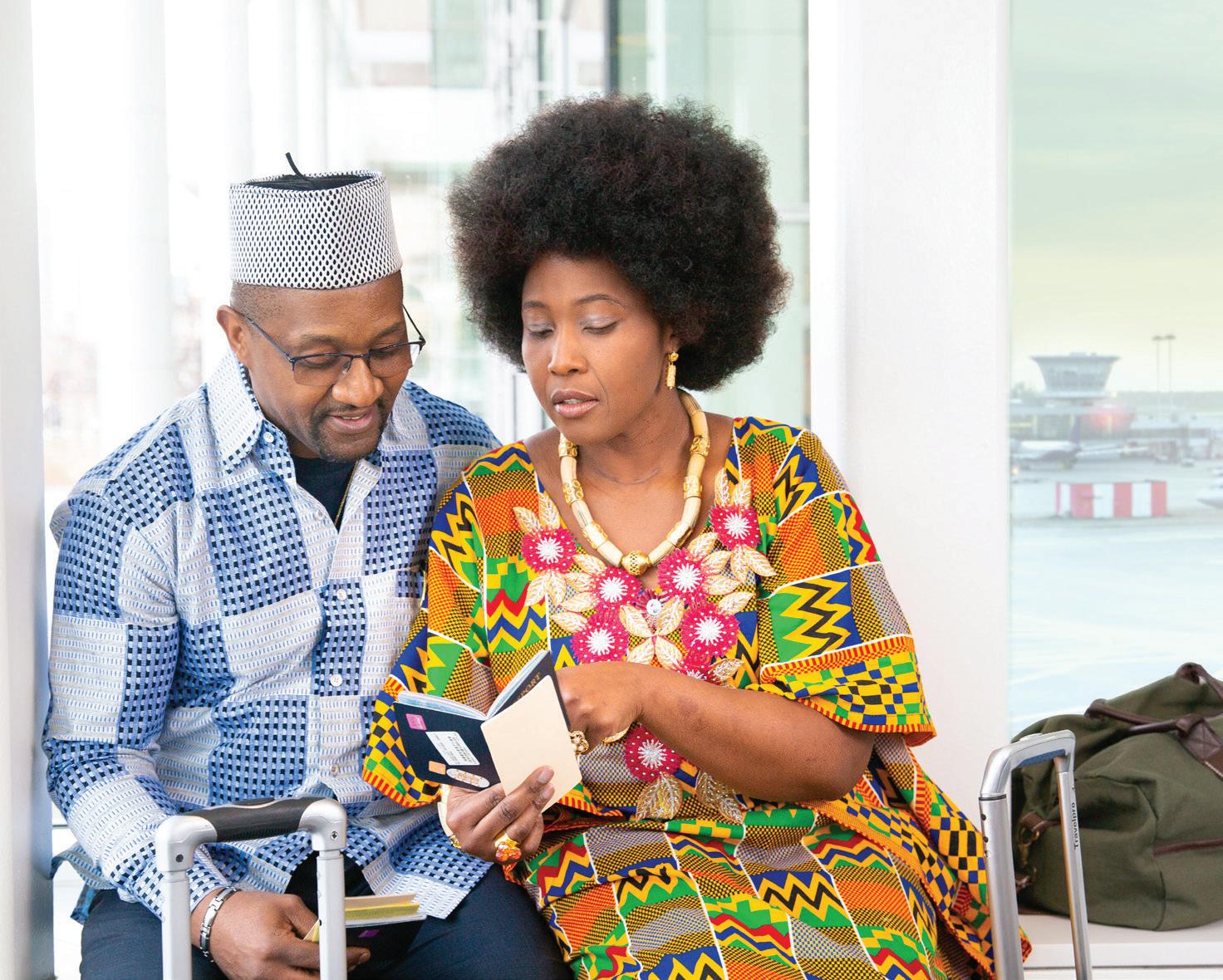
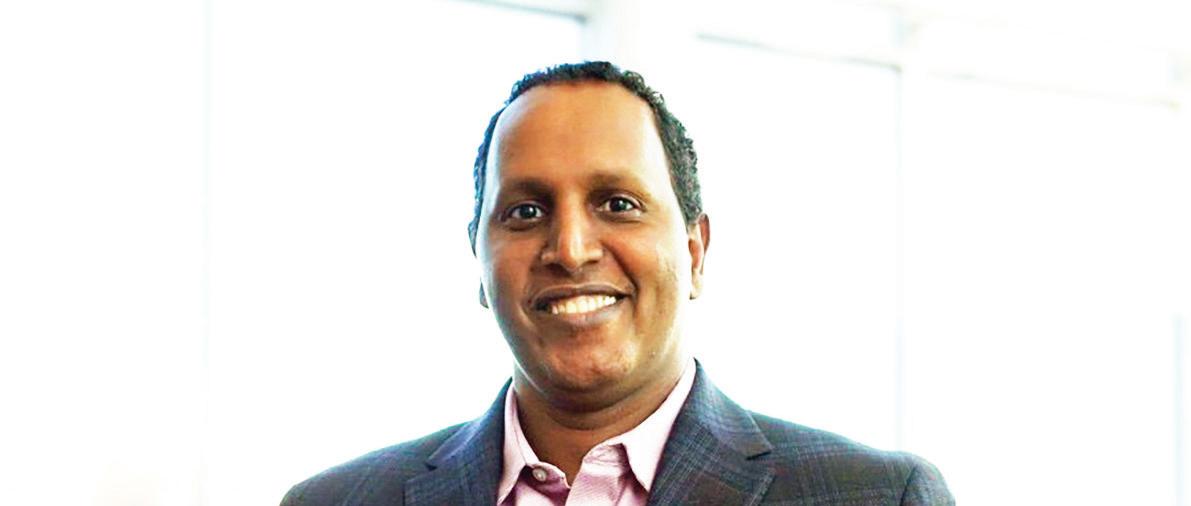
Omar has been serving as interim chair of the board since September 14 after the previous chair, Babette Apland, stepped down after making racist comments about Somali immigrants during an August 8 closed door joint meeting with the Hennepin County Board and Hennepin Healthcare leaders.
The Hennepin County Board declared racism a public health crisis in 2020.
Prior to his short tenure as interim chair last month, Mohamed served on the HHS board’s finance, investment, audit and compliance committees, according to the news release announcing his ascension to permanent status.
A George Mason University graduate with a Bachelor of Arts in accounting,
Omar, upon graduation started his career as an auditor at PricewaterhouseCoopers before moving on to Goldman Sachs in London, as well as Marriott International.
He has an MBA in finance and entrepreneurship and an MS in information systems, both from The Johns Hopkins University.
Hennepin County Board Chair Irene Fernando made history of her own in 2023 when she became the first person of color to be chair of the County Board. In a statement congratulating Omar on his new role, Fernando said “As the first Hennepin County Board Chair of color, I know how impactful it is for our communities to see themselves represented in public leadership.”



In recent days, Donald Trump and his Republican running mate, JD Vance, have doubled down on their false and defamatory claims about legally admitted Haitian immigrants in Springfield, Ohio, thus churning up widespread fears, bomb threats, and school evacuations.
Claiming that these migrants were destroying the American “way of life,” Trump promised that, if elected, he would order massive deportations. This statement echoed his astonishing promise, made during the 2024 campaign and previously, to seize and deport between 15 and 20 million immigrants.
Nativist agitation has a long, sordid history in the United States. In the 1850s, many American Protestants rallied behind the Know Nothing movement and its political offshoot, the American Party, ventures centered primarily on opposing the influence of immigrant Catholics.
In the latter part of the 19th century, hostility toward Chinese immigrants (“the yellow peril”) and, later, Japanese immigrants led to lynchings, riots, and legislation that barred virtually all immigration from the two Asian nations.
During the early 20th century, American xenophobia focused on the alleged dangers provided by the “new immigrants” from Southern and Eastern Europe, predominantly Catholics and Jews.
Such people, it was claimed, had a higher propensity for moral depravity, feeble-mindedness, and crime and were polluting the “Nordic race.” As a result, many “old stock” Americans championed changes in immigration law to sharply reduce the number of these allegedly inferior people entering the country.
Adopted in legislation during the 1920s, a new, highly discriminatory national origins quota system did, indeed, largely restrict their ability to enter the United States, leaving millions to perish in Europe after the onset of the Nazi terror.
Of course, many Americans, symbolized by the Statue of Liberty in New York Harbor, welcomed the arrival of people from foreign lands. In line with their views, U.S. immigration law was significantly liberalized in 1965.
We should also recognize that the United States was hardly unique in undergoing surges of anti-immigrant nativism. Indeed, over the centuries, recent arrivals in many countries experienced rampant xenophobia—including “Paki-bashing” in Britain and violence against Turkish immigrants in Germany. Recently, in fact, intense opposition to immigration and immigrants provided a key factor behind British public support for Brexit and the startling rise of previously marginal, hyper-nationalist parties in Europe.
What has inspired this hostility to people coming from other lands?
Many individuals, it seems, feel uneasy when confronted with the unfamiliar. Thus, they sometimes find differences in skin color, religion, language or culture to be disturbing.
Although some people can and often do find these things a welcome addition to their lives or, at least interesting, others become uncomfortable.
Unfortunately, this unease with human differences provides a ready-made opportunity for political exploitation. As many a demagogue or unscrupulous politician has learned, fear and hatred of the “other” can effectively stir up a mob or win an election.
Although nativism has been mobilized by political parties and movements of varying political persuasions, it has appeared most frequently on the right. Fascist movements of the 1920s and 1930s focused heavily on the supposed glories of their nation and the ostensible biological inferiority of people from other lands.
This xenophobia provided a right-wing ideological component in numerous countries, including the United States, where groups like the Ku Klux Klan, the Silver Shirts, the Nazi Party, and the America First movement lauded a mythical “Americanism” and assailed the foreign-born.
Trump’s adoption of an anti-immigrant approach as a central theme of his MAGA movement, like his promise of building a wall between Mexico and the United States, is no accident but part of a political strategy to ride xenophobia to power.
With the advent of democratic institutions in many nations, the right has faced a difficult situation. Before the commoners gained the vote, their opportunities for effectively challenging economic and social inequality were limited.
But, armed with the ballot, masses of people had the power to elect governments that would implement more equitable policies, such as sharing the wealth. This could be accomplished in various ways, including taking control of giant corporations and estates, heavily taxing vast fortunes, raising workers’ pay, reducing the workday and lengthening vacations, building inexpensive housing, and establishing free education and health care.
Worst of all, from the standpoint of the right, such leveling measures, advanced by a burgeoning left, had significant popular appeal. Consequently, the right has gravitated toward this divide-and-conquer strategy that sometimes worked.
Will it work again in the 2024 U.S. presidential and congressional elections? With the poll numbers so close, it’s hard to say.
Meanwhile, though, it’s worth noting how ironic it is that in the United States―a nation populated almost entirely by immigrants and their descendants―antiimmigrant sentiment, whipped up by Trump and Vance, has once again come to the forefront of American politics.
Dr. Lawrence Wittner, syndicated by PeaceVoice, is a professor of history emeritus at SUNY/Albany and the author of “Confronting the Bomb” (Stanford University Press).
By UN News
The UN on Thursday, October 24, launched the “Common Pledge” initiative, designed to bring together mediators, governments, and civil society to ensure the full, equal and meaningful engagement of women in peace processes.
Announcing the Pledge at a Security Council open debate on women, peace and security, UN Deputy Secretary-General Amina Mohammed emphasized that women’s rights are being eroded while they are being denied an equal voice in decision making.
She cited the worsening crises in Gaza, Sudan, Afghanistan, and Yemen, stressing “it is imperative that we reinforce our resolve to support women advocating for their rights, agency and inclusion at every opportunity.”
Ms. Mohammed underscored that no single mediator could make the difference: “Collective action and solidarity are crucial in today’s broader global mediation landscape,” she said.
The Common Pledge brings together global mediators – including the UN, Member States, regional organizations and non-governmental organizations –to take voluntary but concrete steps towards equal participation in all peace processes.
It includes appointing women as lead mediators and ensuring women are an integral part of mediation teams. It also includes advocating with representatives of warring parties to set concrete targets to advance women’s direct and meaningful participation. In addition, teams will consult “consistently and with a broad range” of women leaders and civil society in all stages of peace processes. It also embeds gender expertise in mediation teams to ensure peace agreements are genderresponsive.
Speaking during the open debate, Sima Bahous, Executive Director of UN
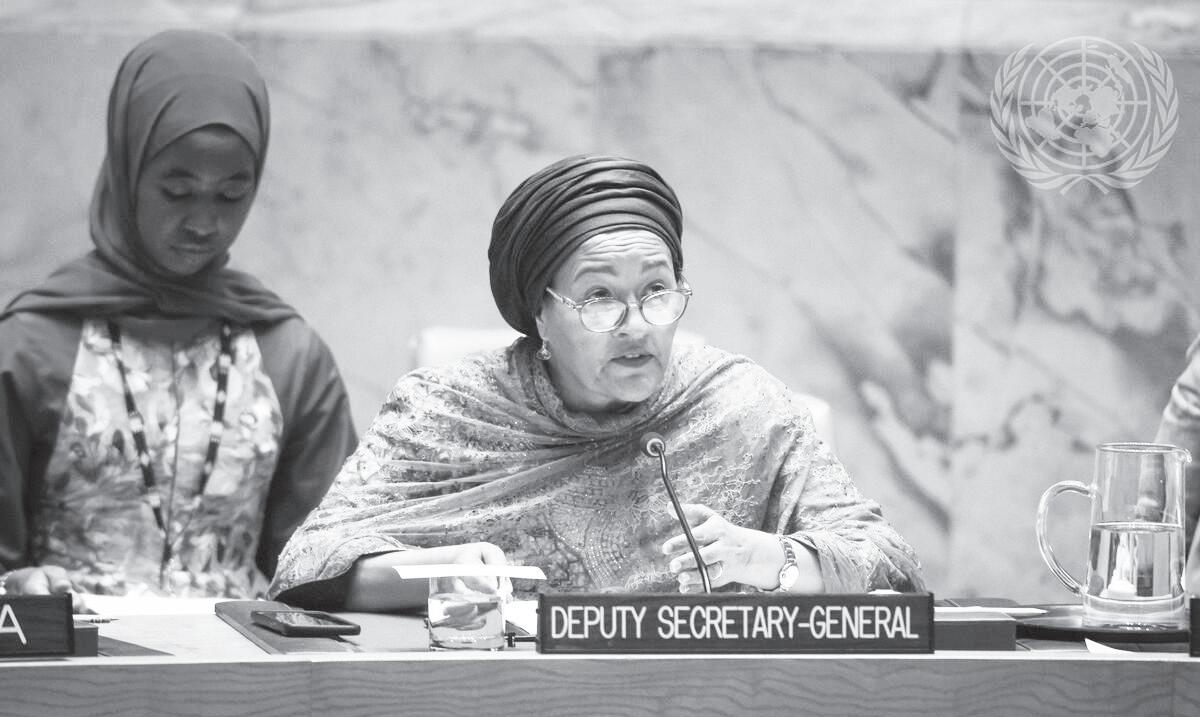
Women – the lead entity for women’s empowerment – warned that growing opposition to gender equality is eroding women’s rights in many areas.
This backlash, she said, plays out harshly in conflict zones, where the consequences are even more lethal. Exclusion of women’s rights and taking away their autonomy in decision making, including for themselves and their bodies can mean “the difference between life and death,” she added.
“The weaponization of misogyny for political gain is extracting a price we will pay for generations. That price will be more conflicts, longer conflicts, more devastating conflicts.”
Despite these challenges, Ms. Bahous praised the unbelievable bravery of women in conflict areas.
From running “clandestine schools” in Afghanistan, to delivering aid in Ukraine, to negotiating peace under siege in
Syria, women continue to make crucial contributions, she highlighted.
“That is why it is incumbent upon us to match [their] bravery…of the women I meet around the world.”
Deputy Secretary-General Mohammed further emphasized that there should be “no illusions” over the current challenges which include huge geopolitical divisions.
“As long as gender inequalities, patriarchal social structures, systematic biases, violence and discrimination continues to hold back half of our societies, peace will remain elusive,” she said. However, progress is possible, she stressed, urging everyone to build upon the collective experience and take unified action.
“Together, we can have an impact that is greater than the sum of our individual efforts. By leveraging our respective political capital and roles, let us dismantle
the patriarchal power structures and advance gender equality.”
The open debate was chaired by Viola Amherd, the President of the Swiss Confederation, which holds the Security Council presidency for October. It coincided not only with the 79th UN Day but also with the 24th anniversary next week of Security Council resolution 1325.
The landmark resolution was adopted unanimously on 31 October 2000 and was the first formal recognition of the gendered dimensions of conflict. Its four pillars – participation, protection, prevention, and relief and recovery –underscore the essential role of women in conflict resolution and peacebuilding. Since then, several follow-up resolutions and global processes have expanded the women, peace, and security (WPS) agenda, including resolution 1820 that recognized sexual violence as a weapon of war and called for more deployment of women peacekeepers.

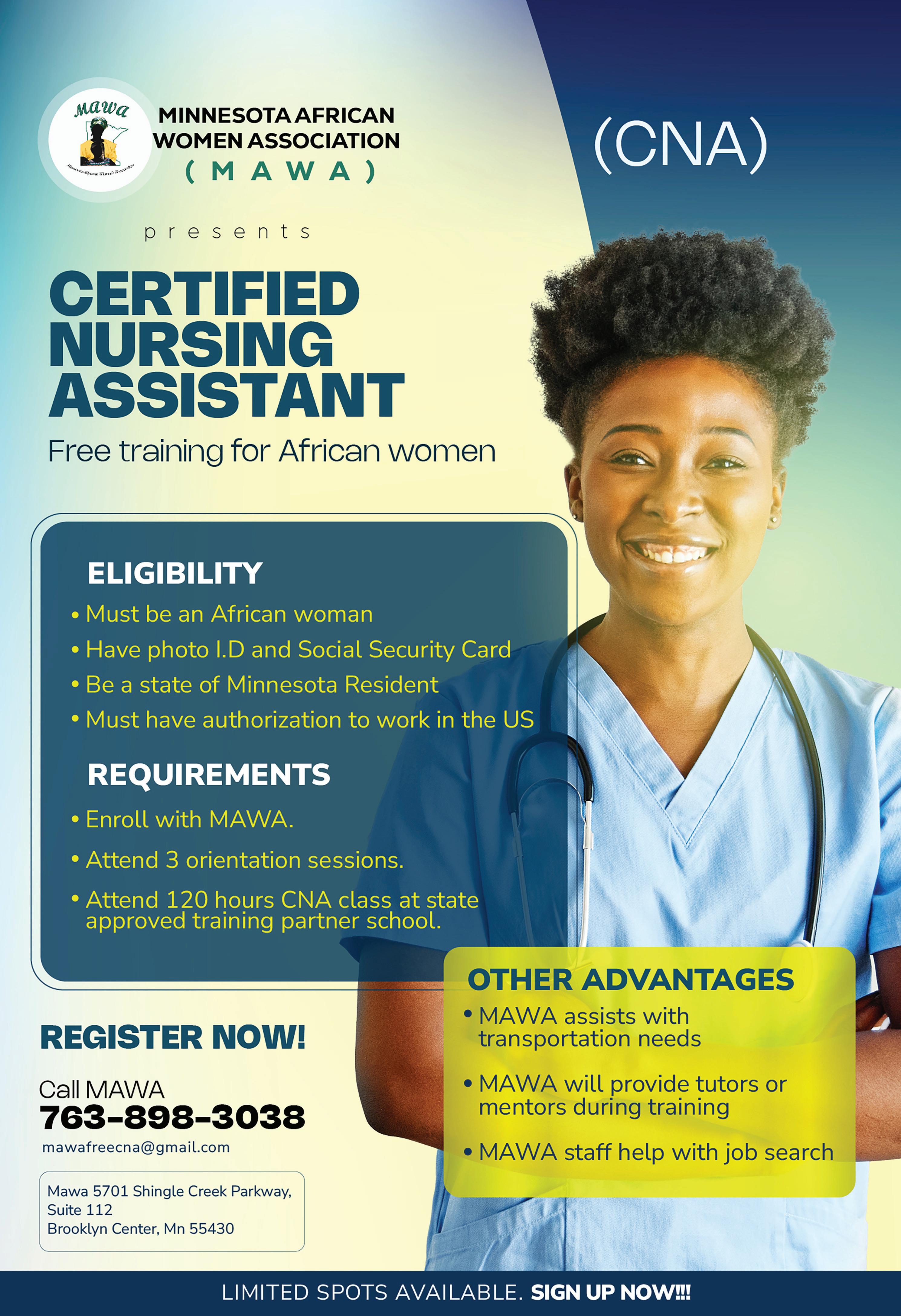
By Stacy M. Brown NNPA
With the 2024 presidential election just two weeks away, early voting is surging nationwide as both parties make their final push to secure crucial ballots. Early voting data has begun to shed light on which states might see the most significant shifts—and, in some cases, repeat the razor-thin margins of 2020. While Independent and other voters are mostly excluded from the figures, pollsters warn that party affiliation doesn’t necessarily determine who early voters are casting their ballots for.
National early voting trends: Key battlegrounds in Focus
Across the nation, more than 15 million mail-in and early in-person votes have already been cast. Among these early votes, 46% come from registered Democrats, 36% from Republicans, and 18% from other parties. The early voting push comes as Vice President Kamala Harris’s campaign encourages Democratic voters to take advantage of mail-in and early voting to lock in ballots well before Election Day, countering the traditionally lower early voting rates among Democratic voters in past elections.
Despite initially criticizing early voting, the twice-impeached former President Donald Trump’s campaign has urged Republicans to vote early, apparently recognizing its critical role in battleground states.
In Georgia, where Biden narrowly defeated Trump in 2020, early voting has seen 1,691,298 ballots cast so far. The partisan split is tight, with 49% from Republicans and 46% from Democrats, reflecting how crucial the state remains in the 2024 contest.
Wisconsin, another battleground where Biden edged out Trump in 2020, has seen 326,124 early votes, with Democrats accounting for 40% and Republicans just 19%. In Michigan, where Biden won by a margin of 50.6% to 47.8% in the last election, 1,031,654 early votes have been cast, with 54% from Democrats and 36% from Republicans.
Pennsylvania, pivotal in Biden’s 2020 victory, has already seen 921,720 early votes, with 64% from Democrats and 27% from Republicans. Nevada, another state that helped seal Biden’s win in 2020, has logged 247,738 early votes, with a breakdown of 40% Democrats, 35% Republicans, and 25% from other voters.

The toss-up nature of the 2024 election
Polling data, including a Washington Post-Schar School survey, shows that Harris and Trump are locked in a dead heat, with each receiving 47% support from registered voters. Among likely voters, Harris holds a slight 1-point lead at 49%, compared to Trump’s 48%. This trend mirrors the tight electoral battles
seen in these battleground states, where margins of victory could come down to just a few thousand votes, as they did in 2020.
“I think this election will break at the end,” veteran Democratic strategist James Carville stated. “Someone will carry the swing states, and that will decide it,” Carville said, adding, “Whoever
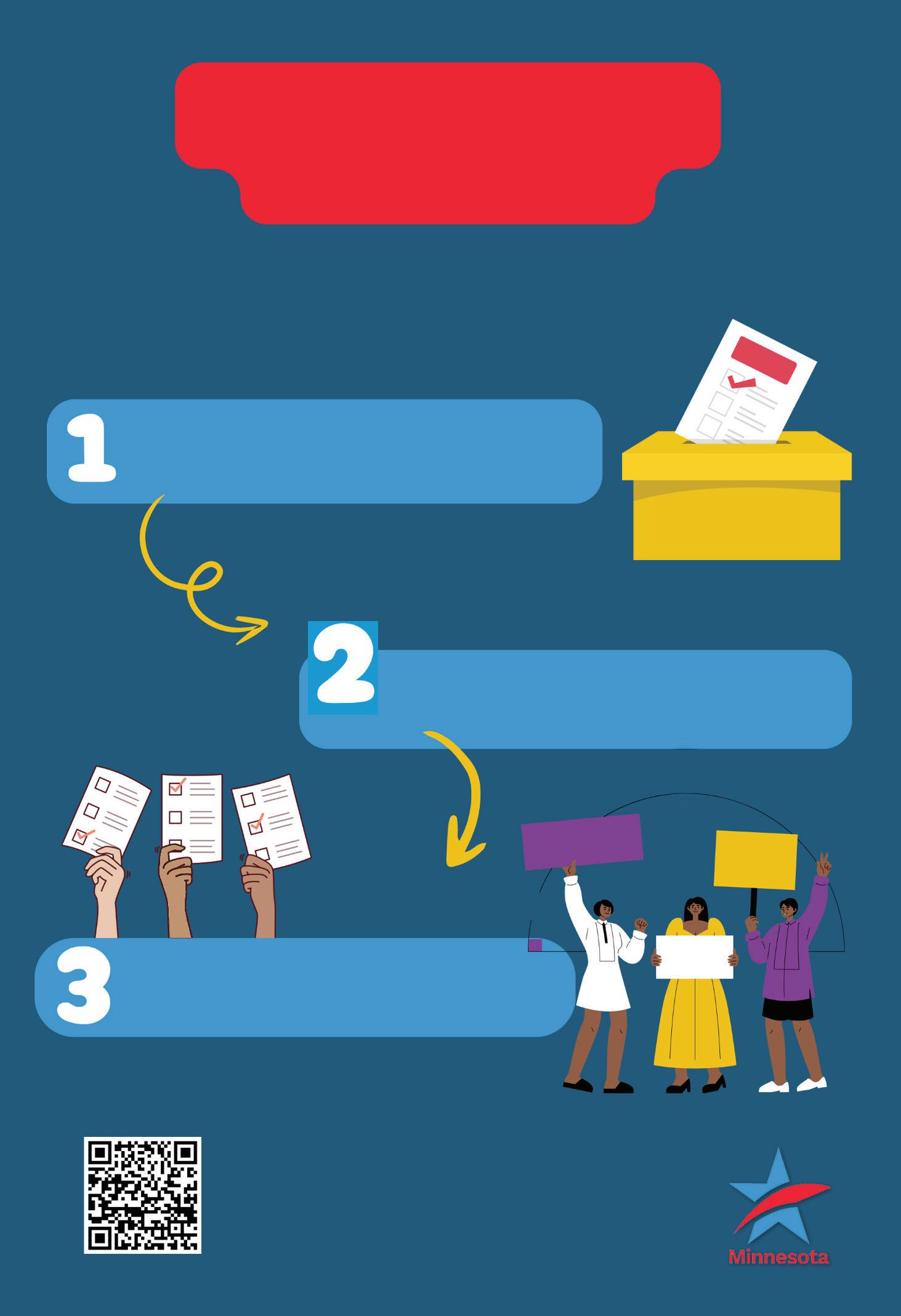



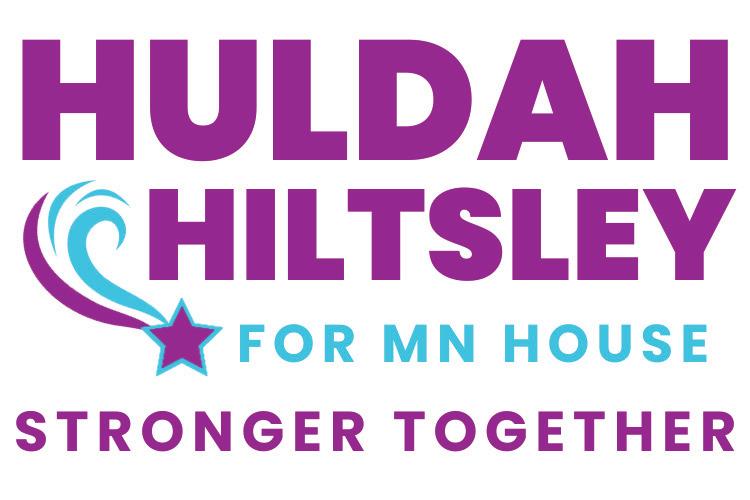
Center (UARC). Howard University, leading a $90 million program over five years, focuses on advancing autonomous technologies for Air Force missions.
• Bridging the digital divide: The Department of Commerce’s Connecting Minority Communities program funds 43 HBCUs to secure high-speed internet, equipment, and IT personnel, directly addressing the digital divide.
• Leading in clean energy: The Department of Energy’s $7.75 million HBCU Clean Energy Education Prize is designed to enhance STEM education and inspire future leaders in clean energy fields.
• Diversity in agriculture: The Department of Agriculture’s $262.5 million investment supports 33 projects to train over 20,000 future food and agricultural leaders, emphasizing diversity in the agricultural sector.
Officials said that the unprecedented support for HBCUs reflects the administration’s broader agenda to promote educational excellence and equity. Reestablishing the White House Initiative on Advancing Educational Equity, Excellence, and Economic Opportunity through HBCUs further signifies this commitment, they said. Further, according to the fact sheet, the administration’s diversity is a testament to this focus, with many HBCU graduates, including Harris, holding key roles.
The new funding coincides with Forbes
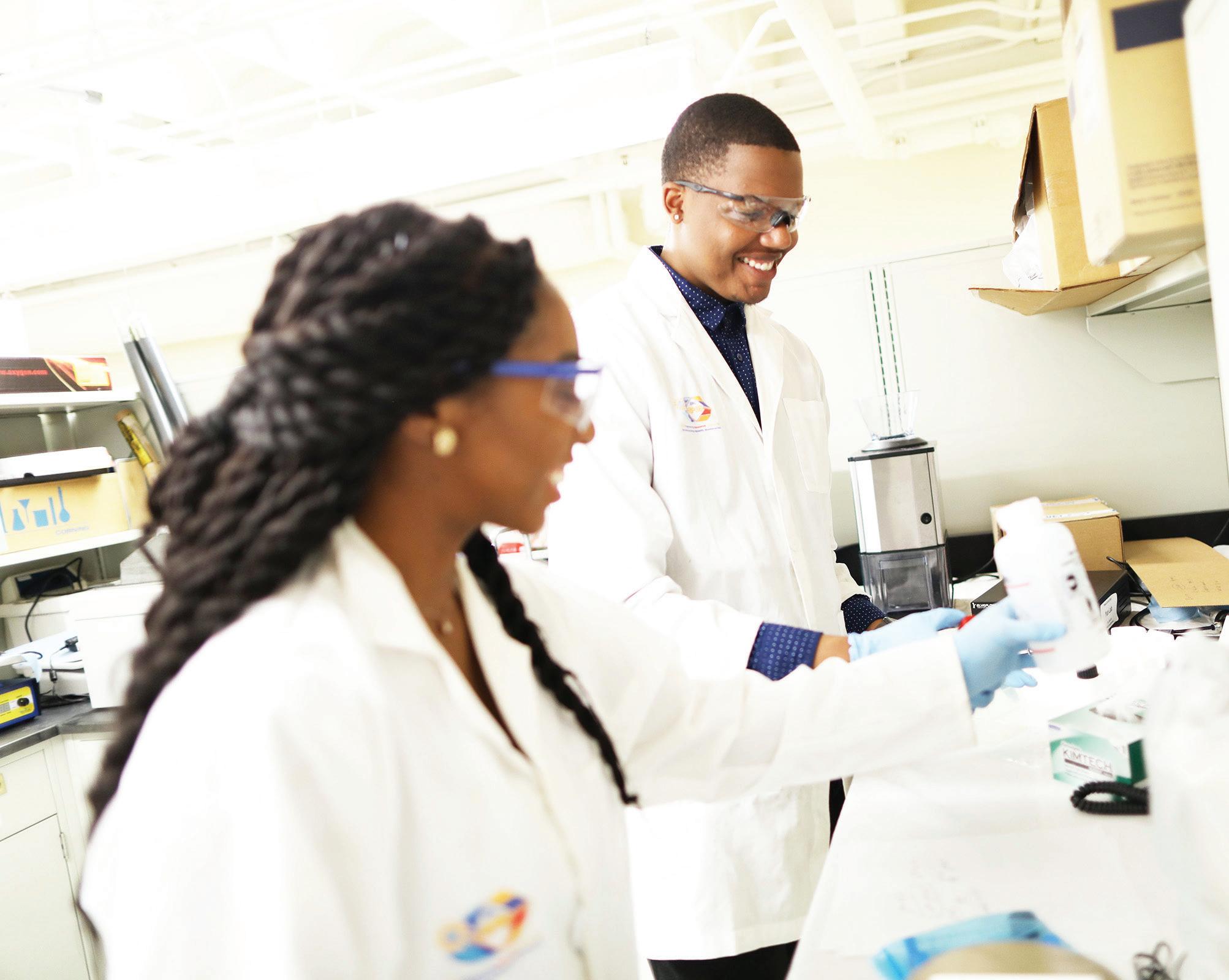
magazine’s recent ranking of HBCUs. Forbes named Howard University the number-one HBCU. It was ranked 273rd among the top 500 colleges and univer-
sities, ahead of Spelman, Morehouse, Florida Agricultural and Mechanical University (FAMU), North Carolina A&T, and Hampton University. The rankings
showcase HBCUs’ ability to produce high-earning, influential graduates from diverse economic backgrounds, often with lower student debt.
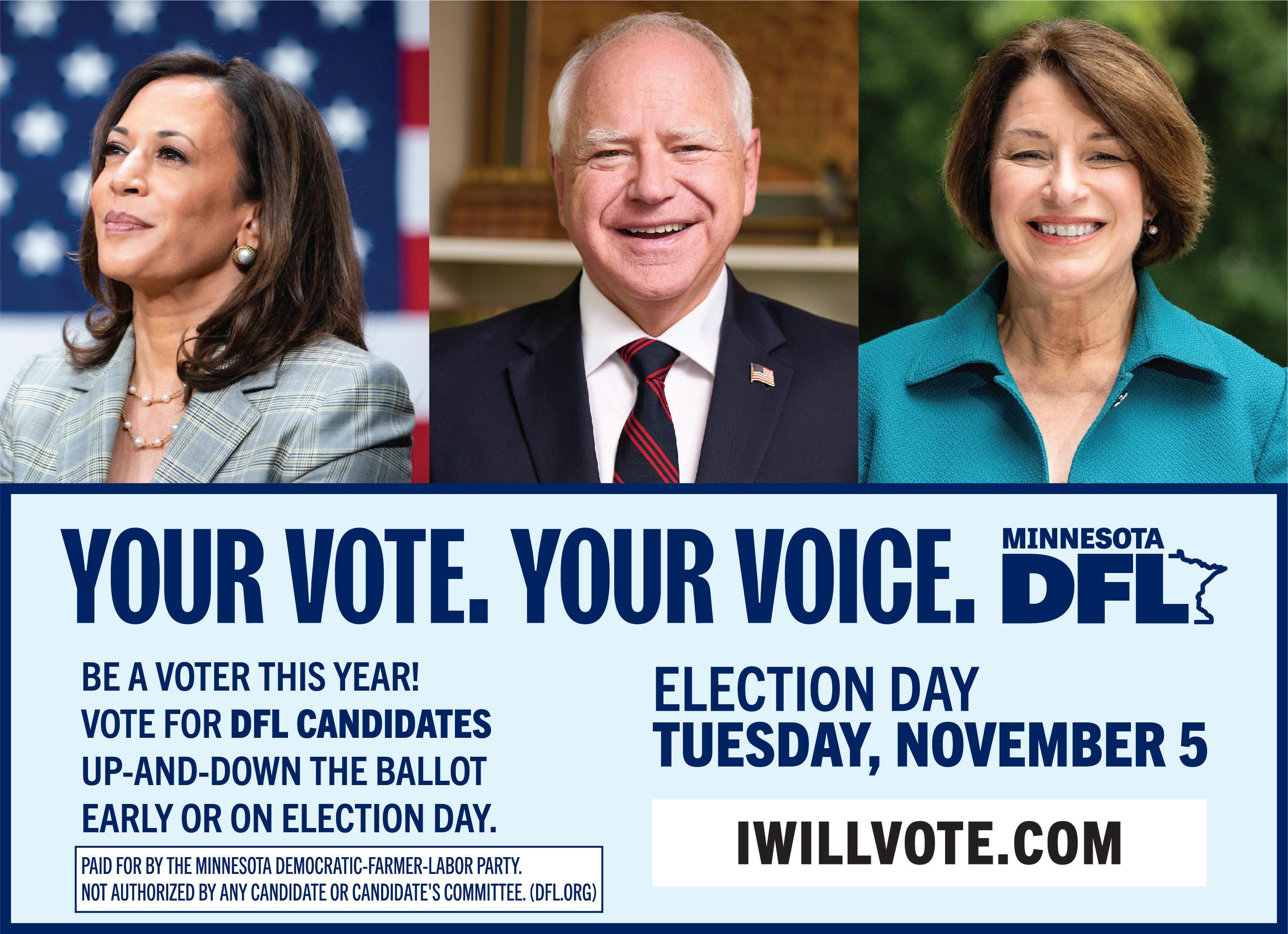
By Mshale Staff
Brooklyn Park City Councilmember Boyd Morson censure came up for a six-month review at the October 14 council meeting. He has been censured twice – in March 2022 and again in April 2024.
At the Council meeting last week, after a lengthy discussion, members decided to keep the censure in place because Councilmember Morson has continued to violate terms of the censure, they said.
The city’s attorney, Jim Thomson, told members a vote was not necessary to keep the censure in place but one will be needed to lift it. The Council consists of seven members which includes the mayor. Five of them said it should be kept in place. One Councilmember Maria Tran was absent.
His censure bars him from having direct contact with city staff with the exception of the city manager and the director of the Economic Development Authority.
Following his second censure in April, Morson wrote a hard-hitting Op-ed in Mshale where he claimed the censuring was curtailing his First Amendment
rights. He has also previously called on the city attorney and city manager to be investigated by the FBI.
Morson who represents the Central District is up for reelection in November but was redistricted to the East District where he is facing political newcomer Amanda Xiong. Morson and Xiong are vying to replace Councilmember XP Lee who chose not seek reelection.
With him being redistricted away from the Central District to the East District, Shelle Page and Teshite Wako are squaring off in November to represent the district on the Council.
Should Morson win in November his next censure review is expected to be shortly after he is sworn-in in January.
Mayor Hollies Winston summarized the sentiments of most members when he said the censure should stay in place as Morson has not changed his behavior.
“The things we ask to be addressed have not been addressed. In fact, more egregious behavior has been in place in terms of trying to destabilize people’s belief in their actual government,” Mayor Winston said.
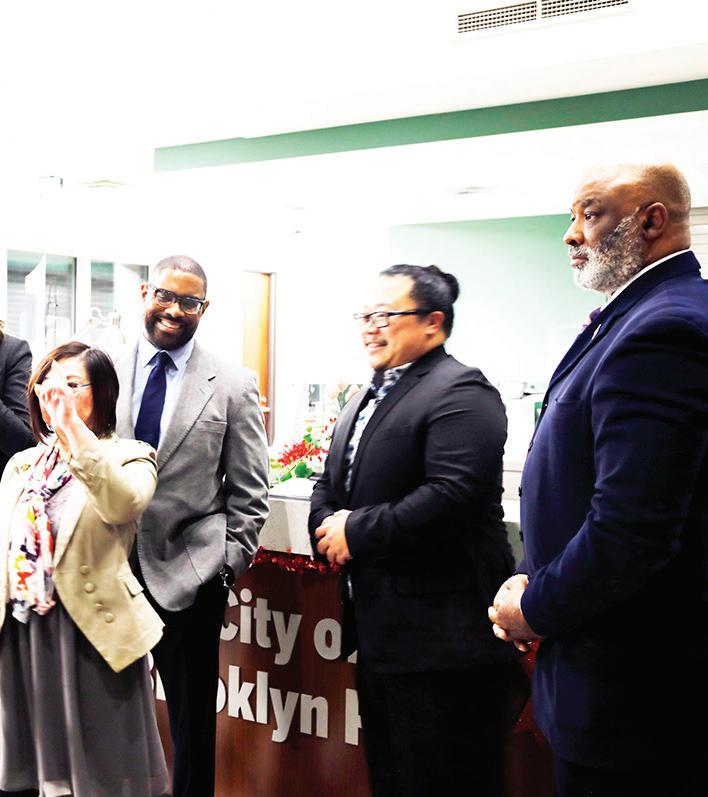
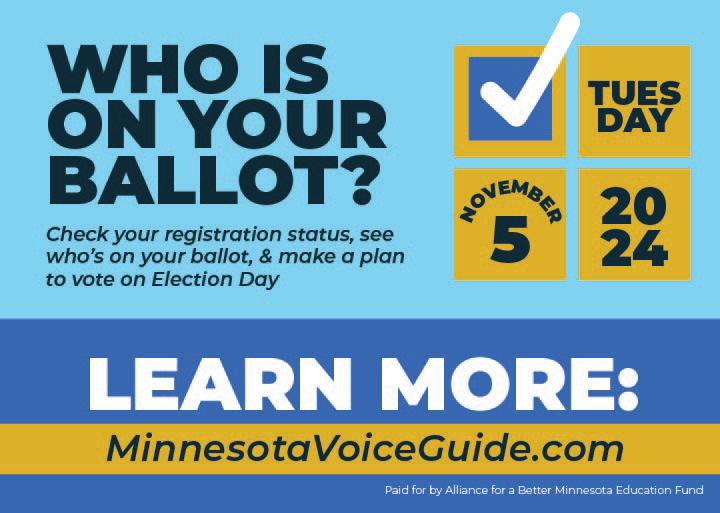
By Adelle M. Banks Religion News Service
At a Presbyterian church in Virginia, members of the small church met to prepare for the outcome of the 2024 election, praying, reading Scripture and strategizing how they will help their local community depending on who is victorious.
At an Episcopal Church in St. Paul, Minnesota, a core group of about a dozen people engaged in a listening process that will influence their programs and budget after the November election.
At a Presbyterian church in New York City, congregants planned a meditative service on the Wednesday after Election Day to reflect on the election outcome — or lack thereof — and include immigrants who they expect could feel vulnerable after the votes are counted.
As questions loom about the outcomes of the 2024 election, faith leaders and some congregations are taking the matter into their own hands — and imaginations.
Across the country and on many Zoom meetings, lay people and clergy are envisioning different possible scenarios — a Harris victory, a Trump win, a change in congressional leadership or an unclear outcome — and thinking, praying and determining how to respond to each.
The congregations in Virginia, Minnesota and New York have followed or been inspired by a “Day 1 Guide” produced by the Vandersall Collective, a consulting firm that aids houses of worship with fundraising and long-term planning. The guide’s focus is not so much on the first day of the next presidential term but, as it reads, “reclaiming perspective in an election year and finding a throughline for shared priorities regardless of election outcomes.”
The 20-page guide includes a prayer by Mieke Vandersall, the collective’s founder, that begins: “Holy One, who knows what it feels like to be overwhelmed, Hold our overwhelm.”
St. John the Evangelist Episcopal Church in St. Paul, Minnesota, is holding a weekly gathering, the “Faith Forum Series: Facing Our Fears,” through the Sunday before Election Day. The church’s pastor, the Rev. Jered Weber-Johnson, said it’s given congregants a new perspective on pre- and post-election concerns.
“My hope is that this will reorient our fear or anger or even joy and celebration, regardless of the outcome, to push for policies and greater support for those that our government and society routinely disregard and leave behind, regardless of which party is setting policy,” he said in
an email to RNS.
Added the Rev. Thia Reggio, whose New York church is also planning a neighborhood peace walk in January before the inauguration: “We’ve recommitted ourselves to our ministries, to the groups we identified at high risk, and have begun to develop plans for how those ministries will look depending on election outcomes.”
Chris Crawford, policy strategist for Protect Democracy, an anti-authoritarian nonpartisan group, said he has worked with about 20 faith-based groups, including interfaith groups such as Interfaith America, since January to prepare for the election, helping them consider what role they could have in keeping the peace and ensuring everyone who wishes to vote has that opportunity.
become advocates for poll chaplains or peacekeepers at voting centers; others have sought to build connections with election officials, such as by attending pre-election testing of equipment used to scan and tabulate election results.
For T’ruah, a nonpartisan Jewish human rights organization, planning ahead for possible election outcomes was not new for the organization, but took on a new urgency after the 2020 election.
“Jan. 6 hadn’t yet happened,” the organization’s CEO, Rabbi Jill Jacobs, noted. “When we were preparing for the 2020 election, we kind of were worried about violence in the abstract. Now, we’re a lot more worried about it in the specifics.”
But Jacobs added: “The ideal thing is we’ve spent a lot of time preparing for
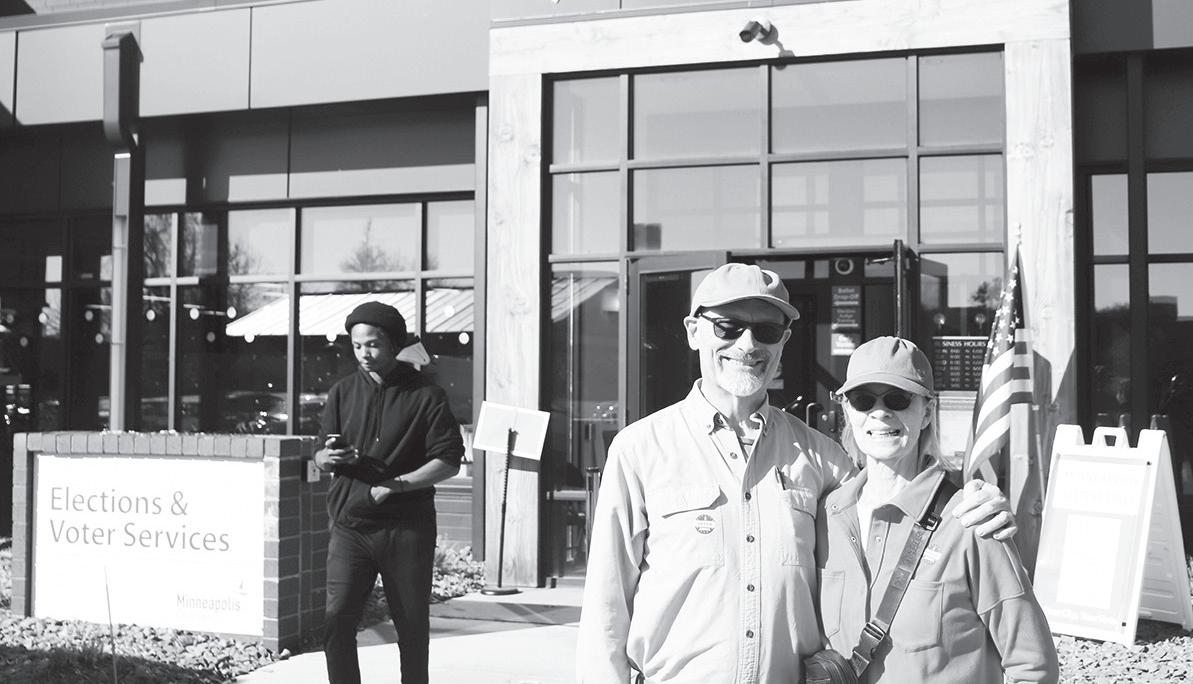
“I was surprised at how many people were interested in this,” said Crawford of the mostly online training. “I think in some ways they might even find it comforting to come face to face with some of the most anxiety-inducing outcomes that we could have to know that they’ve thought about it and know that there are other people thinking about it.”
Speaking primarily to nonpartisan nonprofit faith organizations focused on democracy and voting rights, Crawford has described a variety of scenarios, from a Pennsylvania voting campaign that results in so many voters lining up in a heavily Republican county that it runs out of ballots, to a deepfake video that shows an Arizona county election official’s plans to guarantee a Democratic presidential win.
Crawford said he provides resources to faith leaders on the center right but, as far as scenario planning, “within the conservative religious leaders who I’ve talked to, this has not been something that they’re interested in as one of the tools to prepare for the election.”
After some Protect Democracy sessions, leaders of religious groups have
something that you then don’t have to worry about.”
Beyond the online preparatory discussions, T’ruah has encouraged its members, which total 2,300 rabbis of different denominations, to sign up to be poll workers inside voting centers or to go through a training by Faiths United to Saved Democracy to serve as poll chaplains outside.
Jeanné Lewis, CEO of Faith in Public Life, said her nonprofit multiracial and multifaith coalition gathered in July with Crawford and other partners to discuss election scenarios. Since then, affiliated leaders of numerous faiths have included lessons from those scenarios as they train people in a “peacemakers program” to speak to their congregations and the media to “advance a narrative around peace in this election.”
T’ruah and Faith in Public Life officials say they also are concerned about inaccurate election information and how to dispel it.
“There are trusted experts that faith leaders can validate around information,” Lewis said. “What is the board of elections saying? What is the secretary of
state saying? What is the Department of Justice saying? So there are agencies, entities, trusted messengers that faith leaders can amplify and can validate.”
At Arlington Presbyterian Church in Virginia, just six miles over the Potomac River from the White House, some congregants have stayed after worship service to read and reflect on different scenarios. A 12-page document includes possibilities of government shutdowns, another pandemic and job insecurity for federal workers. But it also looks at possible local consequences such as Gov. Glenn Youngkin stepping up restrictions on trans youth or efforts to “police immigrant communities.”
“We do not want to limit our planning for the most optimistic or most likely outcome, but to ensure our plans are robust enough for any outcome,” reads the first page of the church’s scenarios document.
The Rev. Ashley Goff, pastor of Arlington Presbyterian, said the “Day 1 Guide” was the catalyst for her congregation to pursue its own set of scenarios, which they have discussed together and prayed over, including about the risk-taking that may be necessary.
“If this was a Mitt Romney-Harris election, we probably would not be running these scenarios, but because of the gravity of this election and the possibility of a Trump victory, and the impact that that victory could have on our neighbors — and us — that’s why we’re running these scenarios,” she said.
For a Harris win, said the Rev. Carla Gorrell, a retired minister who worships at the Arlington church, “that scenario points out that there is very likely to be a lot of pushback from her agenda, her goals, from Congress.”
With concerns about racism, xenophobia and homophobia, Gorrell said, “that backlash may happen even stronger to a Harris administration. So the same needs — to seek justice and to support communities who are more vulnerable — will still be there.”
As is the case for other faith-based organizations, prayers are part of the church’s scenario considerations, Gorrell said, for whatever congregations might do – from protesting to attending county board meetings to providing support for communities who may need assistance after the election results are known.
Gorrell, a self-described “political junkie” who lived and worked through other times of turmoil, including Watergate and the Reagan assassination attempt, said she’s looking forward to a decision after all the discussion of what might occur.
“We think – we don’t know,” she said. “I can’t wait ’til this election is over. I just want to know.”
By Susan Budig Mshale
The traveling route from Mali to Côte d’Ivoire to Senegal form an isosceles triangle and would take days if not weeks to travel. The Cedar Cultural Center is making it easy on us to figuratively book the trip by hosting an evening in the middle of the week featuring musicians from all three countries.
On Wednesday, November 13th, Habib Koité, guitarist and composer from Mali makes a return appearance on the Cedar’s stage. He will be joined by balafon player from Côte d’Ivoire, Aly Keita, and Lamine Cissokho, kora master whose roots dig deep into Senegalese soil, drawing on a rich family history of other kora players. An added bonus will be Koité’s longtime percussionist, Mama Kone on djembe, calabash, and electronic pad providing an extra dash of Malian flavor.
The three headliners are collaborating to celebrate Mandé Sila, as described by Rolling Stone, “the way of the Mandingo empire, symbolizing languages, cultures, music, and the organology of West Africa.”
Mshale caught up with Habib Koité recently. He has not performed in the Twin Cities in many years. As was true for nearly everyone, the global pandemic impacted Koité, too. “In my country, in Mali, Covid left its mark everywhere. All planes stopped flying. All the immunization campaigns were difficult to put in place,” he said, his voice resonate and somber. “Especially for those of us who wanted, or needed, to travel, these were difficult times. All the damages caused by it, material, financial, and human. There were a lot of deaths, especially in the Occident.”
Koité persevered, “So for musicians like me, from West Africa, from Mali, I had to stay home, for a very long time.”
For many artists, musicians especially, home-made projects and productions became the norm. Some musicians simply offered gigs for free via YouTube or Facebook. Some sequestered themselves and delved deep into their passions.
“I took advantage of that time to enjoy my home. Make music, too, yes. We had requests
Early Votes
Cont’d from on Pg. 10
breaks those states 5-2 or 6-1 will not only take the presidency; they’ll likely do well in the House and Senate too.”
While much of the focus is on the election itself, the looming influence of Project 2025, a Heritage Foundation initiative to reshape the federal government, has garnered attention. The initiative, which has strong ties to Trump’s first administration, is conservative in ideology.
Despite Trump’s claims that he has no connection to the project, analysis has revealed that well over half of the 307 authors and contributors to the “Mandate for Leadership,” the document
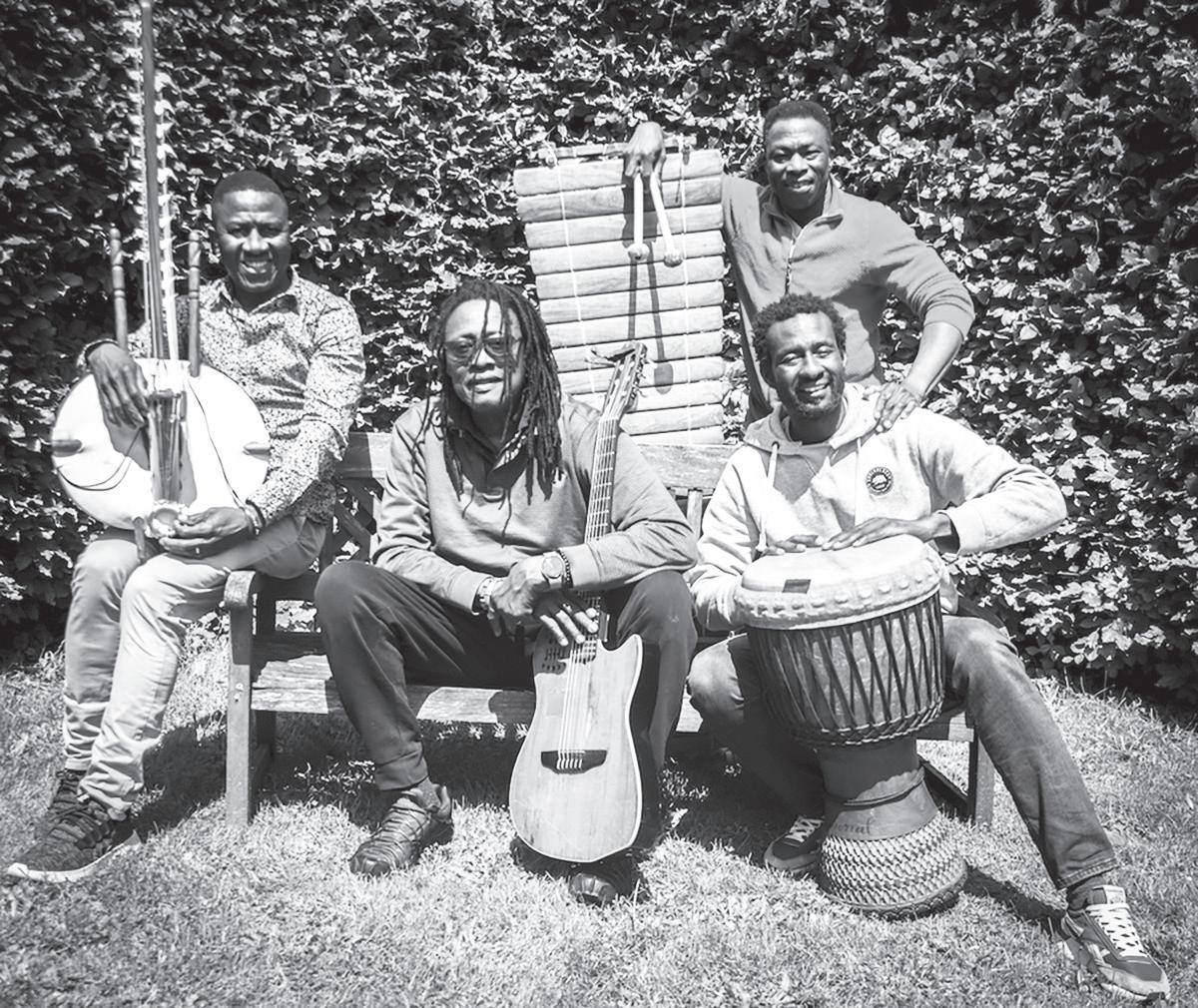
for music from the living room. We made music in my living room,” said Koité. “People who had to stay home, who were not allowed to go out. There were shows for them, so they could watch their favorite bands and musicians, from their living rooms. We had offers like that. We made recordings, in my living room, and then we sent them to the TV station [for broadcast], of course.”
He acknowledged, “We still need to tighten the belt, because after all that, the gates of Heaven are far. We are trying to stay patient and hope for better days.”
Now the better days have come.
While the album Koité and his band released directly before the pandemic “was not at all what we would have wanted it to be” as it was, due to the pandemic, “completely far-fetched, completely straining for me,” he’s writing new music now.
“My music, the music I write, is inspired by local music from Mali. For people who make
guiding Project 2025, served in Trump’s administration or during his campaign.
The policy proposals outlined in Project 2025 aim to overhaul key aspects of the federal government, including dramatically reshaping regulatory frameworks, reducing the size of government, and reversing many policies implemented by the Biden administration.
Critics have pointed out that the project could significantly alter how federal agencies operate, and its influence could expand should Trump return to the White House.
“This race is a long way from decided,” added Carville, who noted he has “a feeling” Harris will win. “But one thing’s clear—whoever breaks those states is going to take the presidency.”
music, there is a curiosity, an inquisitiveness that needs to be satisfied. As a Malian, there is an inquisitiveness to satisfy.”
Koité finds that the music from Mali is so diverse, so varied, “we do not need to go look anywhere else.”
On the horizon…Koité laughed softly at the question. “What I am working on now… easy question to ask, but my thoughts go everywhere, trying to know what to feel or what I should be working on. I think, should I do a solo album, an instrumental album? Ideas go by, I have to decide, make a choice.”
Lamine Cissokho identifies himself as a musician without borders. But with a musical tradition that encompasses his family back to the 14th century, he’s not able to shed his Senegalese roots. He’ll join Koité to create an amalgam of sound and rhythms.
Cissokho has so far composed and arranged about 200 own songs which are inspired by the Mandingo tradition but are revisited by touches of jazz, oriental music and Nordic folk chords.
The third mainstay of this tour, Mandé Sila, is Aly Keita playing as his father did on the balafon. His family is also a griot family from Côte d’Ivoire. While Keita was born in Abidjan, he now lives in Berlin, Germany where he performs solo and with several other groups. He teaches balafon to all ages.
Tickets for the November 13th show, which starts at 7:30 pm are available on the Cedar website: www.TheCedar.org










